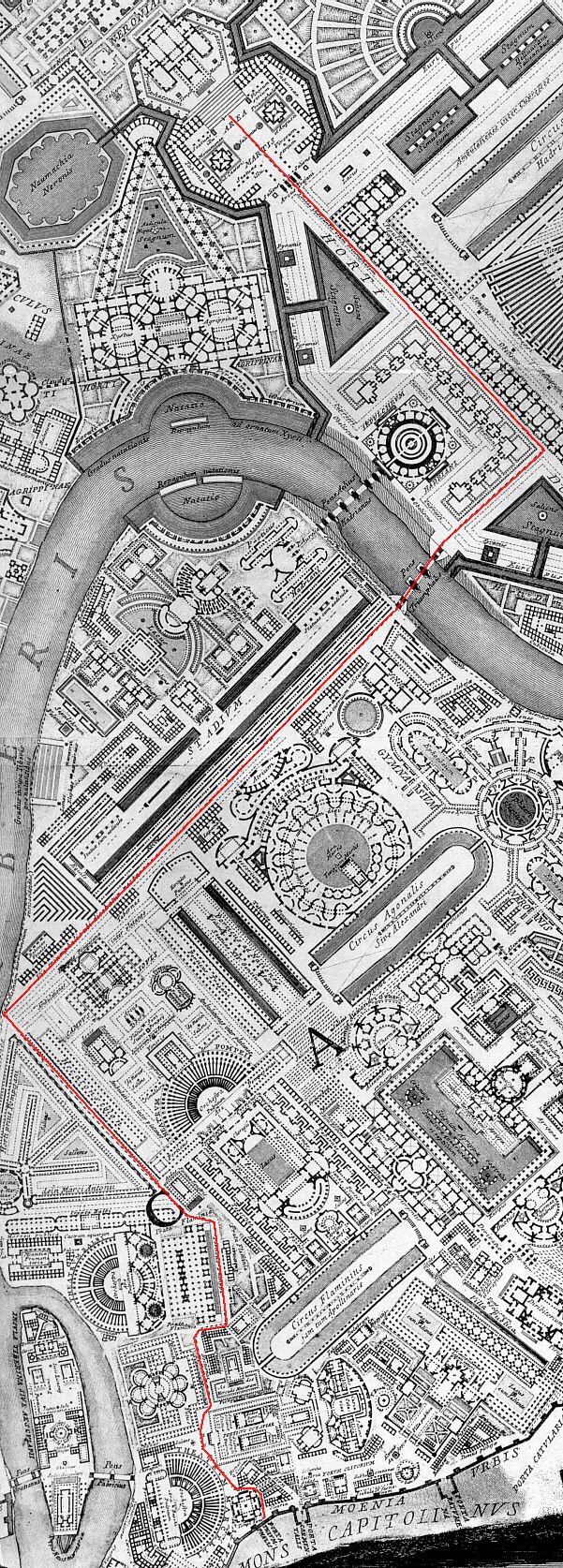Inside the Density of G. B. Piranesi's Ichnographia Campus Martius
pagan 1 : HEATHEN 1; esp : a follower of polytheistic religion (as in ancient Rome) 2 : one that has little or no religion and that is marked by a frank delight in and uninhibited seeking after sensual pleasures and material goods : and unrestrained hedonist and materialist
christian 1 a : one who believes or professes or is assumed to believe in Jesus Christ and the truth as taught by him : an adherent of Christianity : one who has accepted the Christian religious and moral principles of life : one who has faith in and pledged allegiance to God thought of as revealed in Christ : one whose life is conformed to the doctrines of Christ
triumph 1 a : an ancient Roman ceremonial in honor of a general after his decisive victory over a foreign enemy beginning with his entrance into the city preceded by the senate and magistrates, the spoils, and the captives in chains and followed by his army in marching order and ending with sacrificial offerings and a public feast b : a triumphal procession or stately esp. public show or pageant
Pagan - Christian - Triumphal Way
The route of the Triumphal Way within the Ichnographia Campus Martius begins in the Area Martis, a forecourt to the Temple of Mars, and ends at the Porta Triumphalis, the Triumphal Gate within the Servian Wall.
| |

| |
1999.12.07
Tafuri's critique of "operative criticism"
Via Heynen's chapter 3 of Architecture and Modernity, I'm now aware of Tafuri's critique of "operative criticism" and even though Tafuri espouses a "historical criticism", the operation of operative criticism is still very prevalent in the ongoing formulation of architectural history and theory. The prime example (for me at least) of how operative criticism still prevails is in the universal notion that significant architectural history and theory most certainly must emanate from the university, particularly from those who write or have written PhD dissertations.
Other examples include the whole way that "virtual" architecture is assumed to pertain to either virtual reality or computer generated topological architectural forms or some kind of fractal environment. All these (per)conceptions aside, it still remains a fact that the first virtual museum of architecture originates from a modest row home in an immigrant neighborhood of Philadelphia, yet this is not how the "official" architectural historians want this particular portion of architectural history to be written.
The theme of operative criticism is not something I expected, nor did I expect after finding out about it today, that it would describe exactly what I see as "current" history's greatest fault. I will carry this new thinking through as one of the dominant themes of Quondam 2000. Essentially, Quondam will be my vehicle to criticize the "operative criticism" of today, and, in so doing, I will actually objectively follow Tafuri's notion of "historical criticism".
|